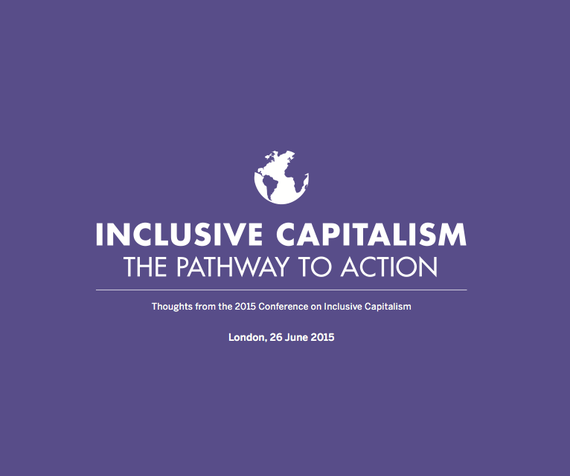Capitalism works. It works perfectly in theory. Marginal products of factors of production equal the returns earned on them. Resources are allocated to whatever endeavours can make best use of them. And we all, as citizen or country, have a comparative advantage.
It works rather well in practice too. Invisible hands wave, and the things we value are made for the prices we are willing to pay. Markets clear. And when they fail, we have tools that counter some of the worst effects. We mandate disclosure and police anti-competitive practice.
Manufacturers write guarantees and advertise five-star safety ratings. We tax the diesel for the bus but subsidise the commuter's ticket. Though these pulls on market levers only get us some way towards the second-best ideal, so much of public policy - and the associated debate - is essentially about balancing the competing incentives.
But as we have seen and heard, this market system which has brought so much benefit to so many is undermined today because it is 'not enough'. Not all who desire access to the system have it. Not all can trust that their contribution will be fairly rewarded. And perhaps none of us can be sure that the system gets it right in valuing the things that belong to a collective - whether that collective exists in space (a village commons to graze the cows) or in time (the buried oil owned by us today and the generations to come).
It is our uneasy understanding of time that poses the single biggest obstacle to a more inclusive capitalism. It is human nature to defer cost and prefer short-term gain over longterm value. This is even easier to do when the costs of today's choices will be borne not by our future selves but by someone else - the shareholder who ends up with an underinvested firm, or the future taxpayer who cannot vote but will shoulder the burden of today's choice. Unfortunately, this deferral of the difficult is not sustainable; we are bound by an intertemporal balancing of books.
Worse, even when we can agree to set sight on long-term value, our human nature again frustrates. It is difficult for a business leader or an investor to stay the course when the long-term outcome is uncertain and the short-term incentive is to cut the loss and seek safe harbour. It is difficult for a government to commit to an optimal long-term policy and take away the option of changing its mind when circumstances change. (When we have the option of changing our mind, we always behave differently than when we cannot.)
All this said, the good news is that the better parts of our human nature - our courage and sense of fairness to name only two - can overcome those that would consign us to failure. It remains to us to harness these to design a capitalism that is more relevant and more resilient, sooner rather than later.

